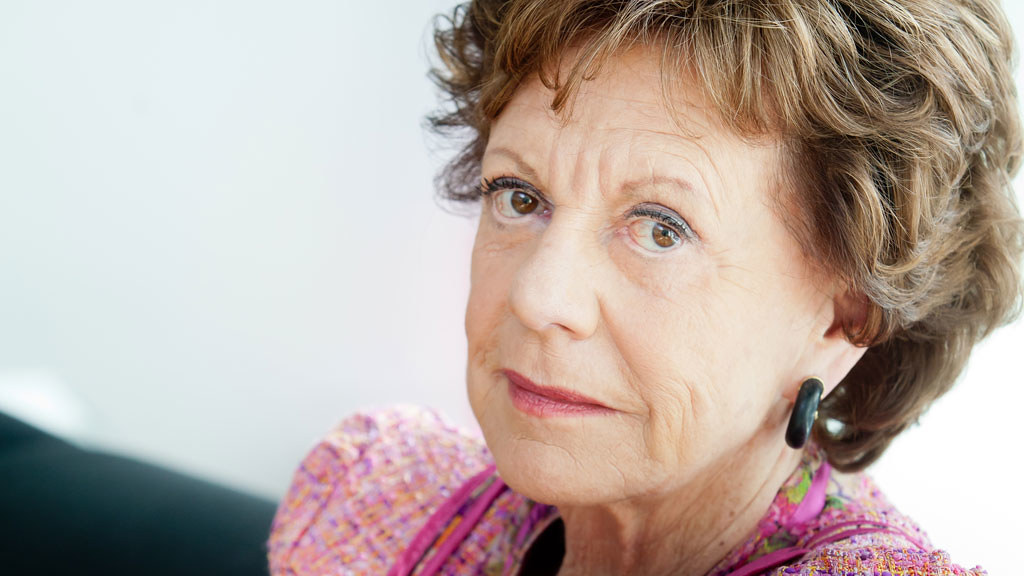Vice-Chancellor, it gives me great pleasure to introduce to you and to this congregation Her Excellency Ms Neelie Kroes, Knight of the Order of the Netherlands Lion and a Grand Officer of the Order of Orange-Nassau, who has been dedicated throughout her career to public service and private enterprise. She has been a force for change in politics and society in the Netherlands as well as throughout Europe in the European Commission, where her tough negotiating style has led to her being referred to as ‘Nickel Neelie’. Working with some of the most dynamic technology firms, Ms Kroes has continued to shape how we think about and do transportation and infrastructure.
Beginning first in university and then local politics, Ms Kroes rose to national prominence as a Dutch MP in 1971 and then Undersecretary for Transport, Public Works and Water Management in 1977, following what was then a European record for time taken to form a national government (208 days). With economic depression and a surge in leftist activism, it was a difficult time to be a governing politician in the Dutch Government. In 1982, Ms Kroes became the Minister of Transport, Public Works and Water Management. When you live in the Netherlands, water management has to be the most important job.
Having left public office in 1986, Ms Kroes returned to the private sector and eventually to Nyenrode Business University, the only private university in the Netherlands. The return to the academy may be a surprise after so many years in public office, but perhaps few know that Ms Kroes began as an academic research fellow at Erasmus University in Rotterdam. Through her stewardship, Nyenrode University became one of the leading business schools in Europe.
Yet, a return to public office would come again with the 2004 nomination to the José Manuel Barroso European Commission as the EU Commissioner for Competition. The role would mean taking on some of the biggest cases which have come to define the European Commission such as the EU Microsoft Competition Case. This case changed the market but also influenced Microsoft’s decision to invest in interoperability.
Indeed, as said earlier, her tough negotiating style means she is well known for results. She has helped pave the way for the unfolding digital economy as we know it today, as EU Commissioner for Digital Agenda in the second Barroso Commission; a post she held until 2014.
During her career in and out of public office, she has been fundamental to the way we think about movement or mobility in Europe. Dutch Transportation networks remain one of the leading infrastructural networks in Europe if not the world. Importantly, during the economic recessions in the late 70s and early 80s, Ms Kroes was in a government which continued to invest in good transportation infrastructure. Beyond national politics, Ms Kroes has been coordinating with digital technology companies in Europe and across the world. The same companies who are changing our everyday lives through digital transformation.
Ms Kroes has served on the Boards of AB Volvo, Ballast Nedam, McDonald’s Netherlands, Lucent Netherlands, P&O Nedlloyd and Nederlandse Spoorwegen. Furthermore, perhaps one my favourite places to be, Ms Kroes is also a member of the financial committee of the Rijksmuseum in Amsterdam. She has made the Forbes “The World’s 100 Most Powerful Women” list a total of five times. In business and in politics, Ms Kroes has offered leadership, dedication, and inspiration at a time when information and communication technologies continue to reshape the world around us.
Vice-Chancellor, I present to you Her Excellency Ms Neelie Kroes who is eminently worthy to receive the Degree of Doctor of Laws, honoris causa.
Professor David Galbreath
Orator
